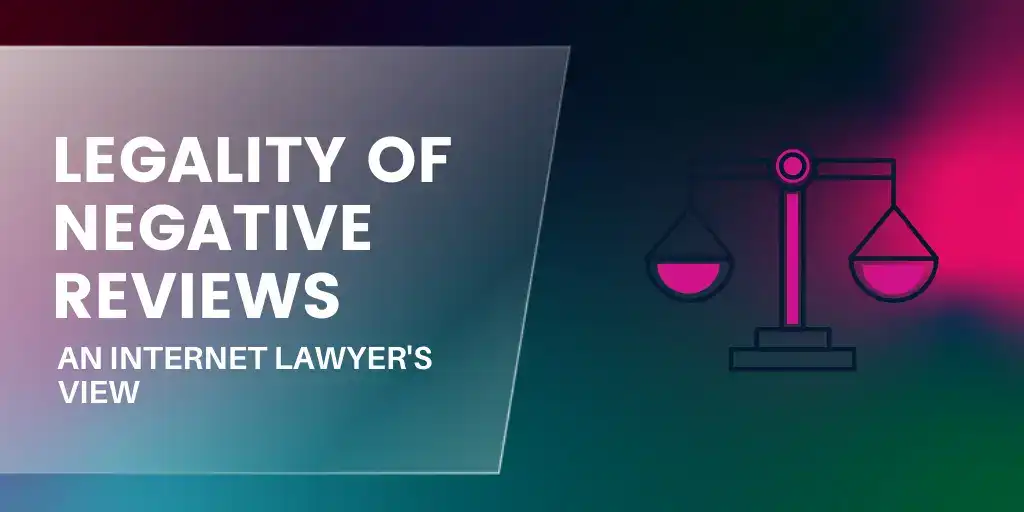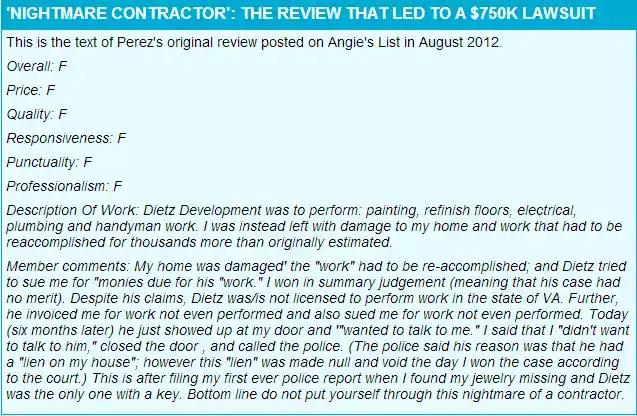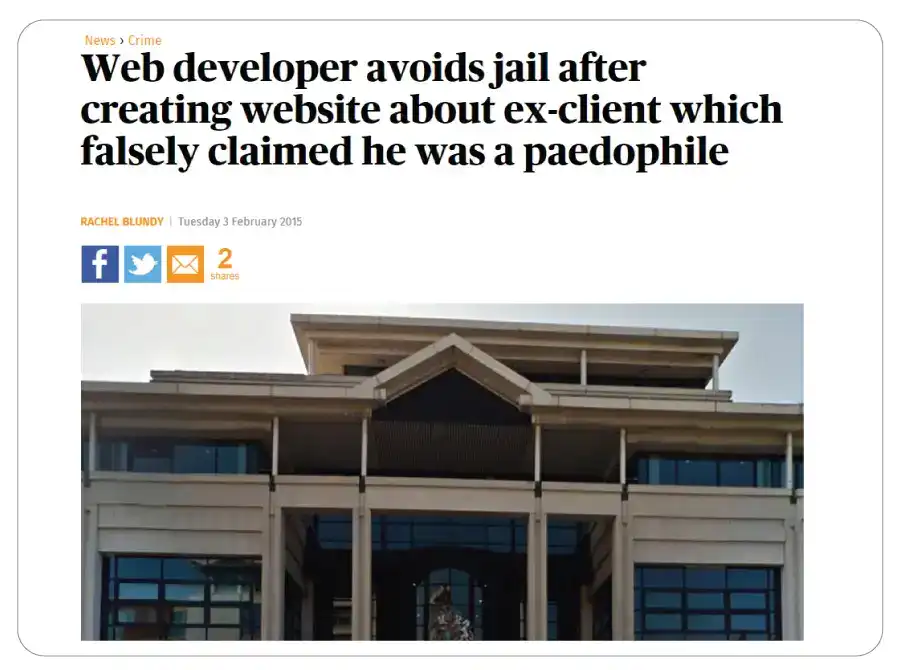
Legality of Negative Reviews - Internet Lawyer's View
Yair Cohen - Cohen Davis Solicitors - The Internet Law Centre
Tripadvisor, Trustpilot, Trusted reviews…we could go on. There’s certainly no shortage of review sites on the internet – and in this day and age – any company worth its salt needs to be on the receiving end of solely positive ones.
However, ‘Negative Reviews’ being used as a tool by companies to out-do their competitors is a rising trend which the law needs to start recognising.


Only a few lawyers specialise in internet law, but according to Yair Cohen, leading internet lawyer in this age of internet expansion “it’s only a matter of time before more firms go into internet law and start dealing with malicious negative reviews more seriously.”
So when we talk about negative reviews, what exactly do we mean?

Negative reviews are pretty self-explanatory - a bad write up of an experience/service/product that your company offers – what makes them illegal though is if they are malicious or completely untrue. If an agency/individual have taken it upon themselves to write one (or most likely a few hundred) unsubstantiated reviews against a company they will be liable under the tort of defamation. This, like damage to one’s business or copyright, is a civil offence and therefore punishable by liability to pay damages.
However, if these reviews are taken one step further, specifically onto a personal level, then the criminal law will in fact step in; libel (written defamation of a person’s character) in the form of a review could equate to harassment and infringement of the human right ‘right to life’. These are criminal law offences and therefore a matter for the police, the courts, and could even hold a custodial sentence, as well as damages.

By way of example, writing a restaurant review claiming food gave you food poisoning is merely defamation of the business and will only require damages to be paid, however if the owner of the restaurant was accused of putting poison in the food, this would obviously have a great deal more serious consequences – the Human Rights of the restaurant owner would have been infringed and this would give cause for a criminal case.
In a case dealt with by Yair Cohen, internet lawyer of Cohen Davis Solicitors, an SEO/web development company named Origin Design House created negative reviews in the form of a website about a property surveyor Mr Phipps.
The website included the sentence “My name is Ian Phipps and I am a paedophile”, Kingston Crown Court heard.
Internet Lawyer Yair Cohen was able to trace the reviews back and track IP addresses, voice recordings and telephone calls, and as a result the director of Origin Design was arrested.
Mr Cohen said “It was really an example of a web designer abusing the responsibility that was put in him - it was an abuse of trust.”
“When you wake up one day and see that someone is accusing you of being a paedophile - it is devastating. He will remember that for the rest of his life.”
The director- Mr Paul Britain – was handed a prison sentence, suspended for 12 months and ordered to pay Mr Phipps £10,220 in compensation.
What is the legal issue with Origin Design's actions, then?

In law, posting negative things about a business, and essentially ‘naming and shaming’ an individual (without proof that the allegations are true) constitutes harassment, which as aforementioned, is a criminal offence. The serious allegations against the property surveyor in this case amounted to an infringement of his Human Rights, and this meant Origin Design’s Director was sued for harassment.

Furthermore, the entire company was sued for defamation and ordered to pay damages to the client.
How do the courts determine damages?
Damages are dependent on the shift between the money a website was generating before the illegal SEO attack, and the money generated afterwards. The courts will also consider the money and time that will need to be spent on cleaning up the website due to the negative SEO.
Who is responsible, legally speaking?
This question is a tricky one, as negative reviews are not a criminal offence as such, so cannot be punishable by a custodial sentence; the Police Force will not get involved in cases such as these.
Negative reviews are a civil offence, therefore punishable by damages paid (the amount which we will come onto later) and the offences all come under the blanket of the civil law offence of ‘Tort’.
Tort law is defined as wrong doing with a view to causing damage to another, be that monetary, damage to a reputation or, largely in this case, damage to someone’s intellectual property.
In general terms, it might be possible, once we have established the identity of the offending party (‘the defendant’), to bring legal action for ‘intentionally causing loss by unlawful means’. The unlawful means can be directed towards the defendant directly (for example interference with intellectual property rights) or towards a third party (for example Google) with the consequence of causing loss to the claimant.
If it can be shown that there is a potential claim, then before the claim is taken further, the claimants should be able to make an application to the court for a ‘Third Party Disclosure Order’ to help us identify the defendant by asking various third parties (including Google) to furnish us with IP addresses and other relevant information. This process has been used very successfully in the past, e.g. in the case of Origin Designs (discussed above) to identify defamation offenders before we bring legal action against them.
Successful legal action can be brought against any defendant provided firstly that they can be identified and secondly that it can be proven they have carried out an unlawful act e.g. negative reviews were traced back to their IP address.
What does the future hold?

It’s pretty clear that negative reviews as a form of negative SEO are becoming increasingly prevalent and is a largely growing trend that shows no sign of stopping; its cloak and dagger nature only serves to make it a low risk and relatively easy way for companies to outrank their competition. The fact that it can be done from the comfort of one’s own home, in any and every corner of the earth, means that without a Third Party Disclosure Order, it can be almost untraceable and hence notoriously difficult to prove.
Mr Yair Cohen thinks “It’s going to take a good few years before anything changes with Negative SEO”.
The cases so far have mostly constituted trolling, bad reviews and harassment, but the law is trying to catch up and anything considered a civil matter is being brainstormed by the next generation.
“It’s a jungle out there” - he says, “you can get away with quite a lot”.
